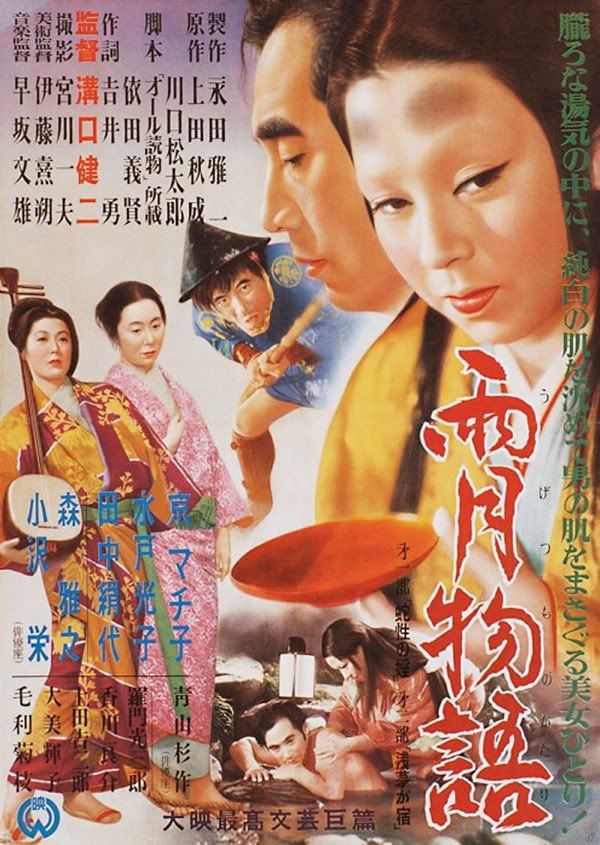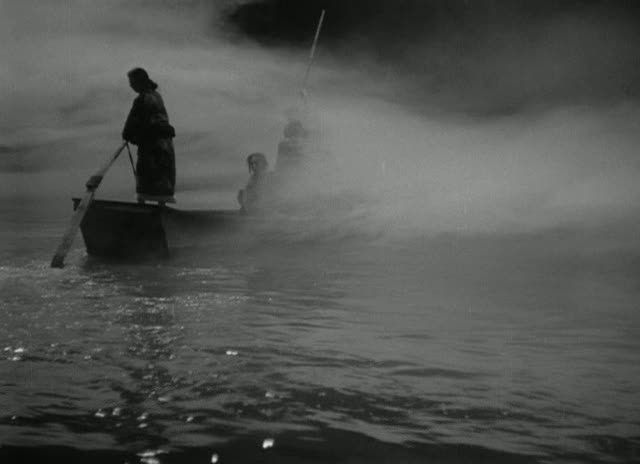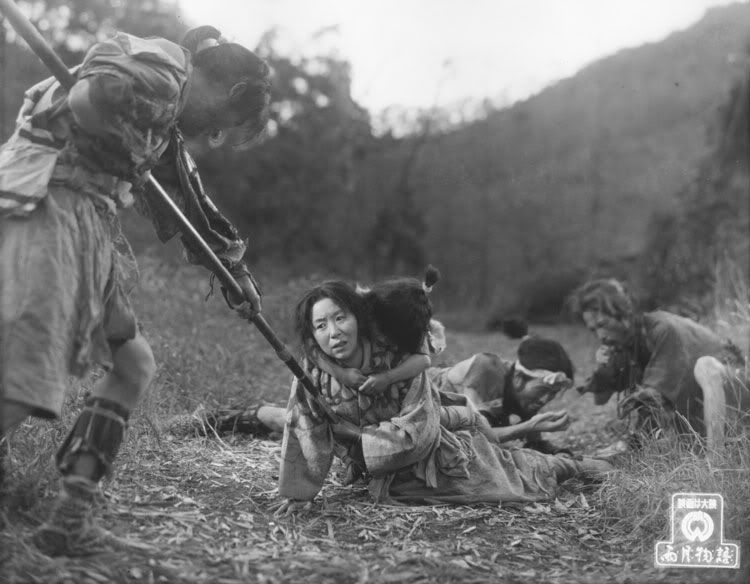Ugetsu Monogatari

Rating: 4.5/5
Genre: Drama, Fantasy
Starring:Masayuki Mori, Machiko Kyô, Kinuyo Tanaka
Director: Kenji Mizoguchi
Language: Japanese
 When perusing articles on the subject of Japan's golden age of cinema – the 50s and 60s – one name that kept making an appearance, often more so than the world renowned Kurosawa, was the name of Mizoguchi, and after witnessing this masterpiece it's not difficult to see why. As was common for the time, much of his cinema harks back to the feudal era of Japan's history, the Edo period, filled with danger, samurai, retainers, shoguns, daimyo; plots of war and constant fighting for control of the small nation. Many great works from this period were really written hundreds of years later and immortalised in film, but it's in this well explored material that Mizoguchi manages to do something few others attempted. Rather than tell his tales from those with power, he tells his parables from the perspective of the common man.
When perusing articles on the subject of Japan's golden age of cinema – the 50s and 60s – one name that kept making an appearance, often more so than the world renowned Kurosawa, was the name of Mizoguchi, and after witnessing this masterpiece it's not difficult to see why. As was common for the time, much of his cinema harks back to the feudal era of Japan's history, the Edo period, filled with danger, samurai, retainers, shoguns, daimyo; plots of war and constant fighting for control of the small nation. Many great works from this period were really written hundreds of years later and immortalised in film, but it's in this well explored material that Mizoguchi manages to do something few others attempted. Rather than tell his tales from those with power, he tells his parables from the perspective of the common man.If there was one thing I would be ashamed to admit as a lover of film, it's that without the newer gloss of current films – and in particular the use of colour – and without the comparatively frenetic pacing, I often find my attention waning far more quickly than perhaps it would otherwise. So when a film from the era manages to keep me enthralled from beginning to end, you can be rest assured there's plenty of story here to tell; war on it's way, a pottery maker, Genjuro, and his samurai obsessed brother, Tobei, decide to make for the nearby town and sell as much of the wares as possible before the soldiers arrive. Making a small fortune, they decide to make one last batch against the warning of the village elder; commissioning their wives they worked night and day to make enough to sell the following day, but soon the soldiers strike. Fleeing to the mountains, Genjuro risks his life to return and ensure their wares are safe, and making off with them they decide to travel by boat to the big city and make their fortune. This is just the beginning of their adventure to seek their fortune and follow their ambitions, and the ultimate price that they must pay as a result.
So much happens that you're constantly questioning where it's going to lead next; the four characters all find themselves separated and get followed and different times, albeit never in a manner that seems confusing or disjointed, but the question of what's happening to their plight as another character quests onwards lingers in the air. That they all care for one another is never in question, but the constant grinding hard labour with little rewards causes them to constantly yearn for something better, and when the glint of an opportunity presents itself, it's all they can do to seize at it. There is a moral to all this however, and as the film progresses we see just what became of those they left behind; the tragedies and
 hardships their desires have thrust upon their loved ones. There is a valuable lesson to be learned from these men: never let your ambitions forget the ones to whom you hold dear.
hardships their desires have thrust upon their loved ones. There is a valuable lesson to be learned from these men: never let your ambitions forget the ones to whom you hold dear.There are constant rolling shots mirroring the restlessness of the cast, always on the move, always looking ahead and never back, and the characters are never just caricatures but real people guided through circumstance from one state of affairs to another; so blinded by what's in front of them that they never stop to think of their companions. The women aren't helpless creations who follow their husbands but too, are real people with desires and they in fact turn out to be the smarter gender, the more faithful and considerate of the two pairs, paying more attention to the advice of their elders and taking a more pragmatic approach to their situation. Unknown by most and yet loved by the few, the inherent romanticism and beauty of his work tells a tale unlike any other.

Comments
Post a Comment